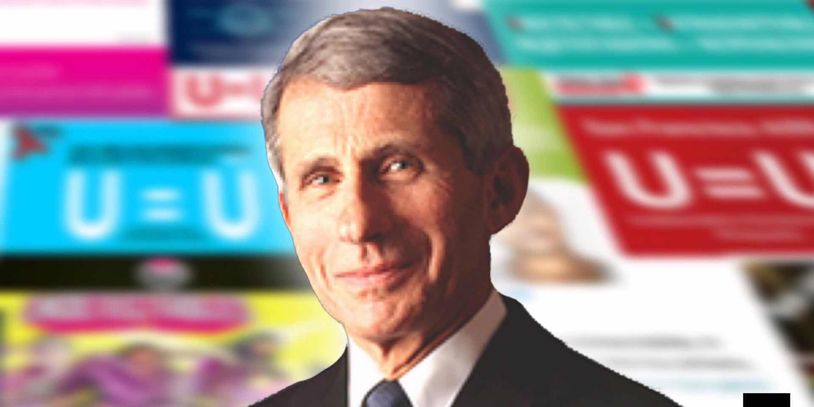What is U=U?
The Science is Behind U=U

Pictured above: Dr. Fauci, MD
Do you know U=U?
Promoters of the Undetectable = Untransmittable (U=U) message were out, proud and visible this year at the International AIDS Conference, spreading the message that people living with HIV with undetectable viral loads do not transmit HIV to partners.
Numerous conference attendees could be seen sporting U=U t-shirts, and supporters of the campaign spoke at an official conference press conference about treatment as prevention and U=U. More than 300 community partners have signed on to support the campaign: At the conference, the City of Paris, UNAIDS, and Planned Parenthood Federation of America (among others) announced their support.
The science behind U=U, said Anthony Fauci, NIAID director, goes back many years to a time when empiric observations happened outside the realm of clinical trials. Now, in more recent years, we have data from large clinical trials including HPTN 052, PARNTERand Opposites Attract.
Anthony Fauci, MD
“Sometimes clinical studies don’t hold true when you follow them up for years. That has not been the case with treatment as prevention…When you went out into cohorts, like the PARTNER study…there were 53,000 condomless sex acts among discordant couples. And there was not one single linked infection. I think it’s one of the unusual situations in science when the overwhelming accumulated evidence base allows us to be able to confident in what we’re talking about,” said Fauci.
U.S. Global AIDS Coordinator Deborah Birx, MD, also shared support for U=U, saying, “I think what the U=U campaign does is it provides a message to communities that is based on the scientific details, and really provide those details in a real way so that people understand that when you have HIV—which once was a death sentence for many people we are privileged to work alongside—has become an ability to live healthy, productive lives as long as people are adherent to treatment.”
The founder of U=U, Bruce Richman, shared a more personal perspective.
Bruce Richman
“When I was diagnosed with HIV in 2003, I felt like I was a walking infection. I was terrified about passing HIV on to someone that I love. I didn’t start treatment because taking a pill every day would remind me that I was infectious, every day. After I started treatment in 2012, when my health started to deteriorate, I learned from my doctor that because I was undetectable, I couldn’t transmit HIV. I couldn’t pass it on. I was elated.
“But very soon I became outraged. Because every HIV treatment site, every media outlet, every ASO, every federal health department, every state health department, everywhere, was saying that I was still a risk. And millions of people with HIV were still a risk. It was clear, for many reasons, that the breakthrough science wasn’t, and still isn’t, breaking through to the people it was intended to benefit. It wasn’t accepted or understood outside of well-informed medical and public health communities.
“To clear up the confusion, a group of us living with HIV collaborated with researchers on a consensus statement and advocacy campaign called Undetectable is Untransmittable.”
Richman shared a few more thoughts about the U=U campaign with BETA including the reactions to the campaign, and what he hopes for the message moving forward.
.
Fear Drives Stigma

Has it been more difficult to shift people out of a fear-based mindset than you anticipated?
"Yes. It’s surprising the lengths to which people will go to keep HIV stigmatized. People will seek out data that’s inconsistent with science in order to reinforce their stigmatizing beliefs. This is about unlearning decades of fear of HIV. It has been much harder than I thought. It’s also been much better now." Bruce Richmond, Founder U=U Movement.
Putting the Human Back in HIV
He is a Louisiana native and lives in the Lafayette area.